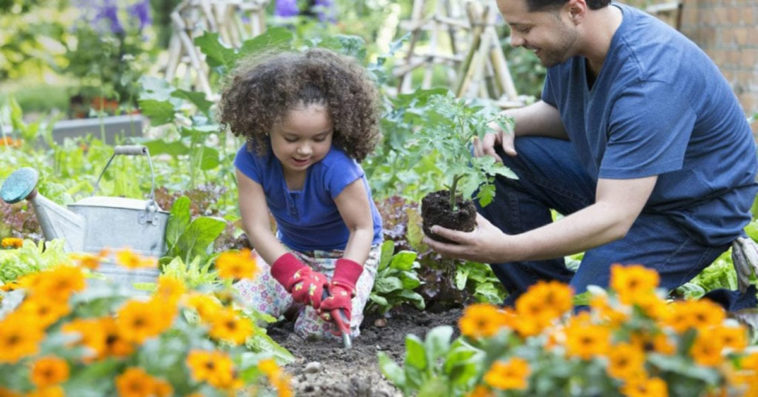Have you heard of people who can fit their entire year’s worth of trash in a jar? It seems impossible, but they do live that way. These zero-waste lifestyle champions aim to conserve environmental resources by reducing their wastes that go into the landfill. To reduce the use of plastic wastes, they advocate to refuse what you don’t need, reduce what you need, reuse by using what you have, recycle what you can and rot or compost the rest.
Zero-waste living isn’t just what you do inside your home. You can also help the environment through zero-waste gardening. When you start gardening, you will notice that you are using so much plastic that goes to waste afterward. To help you ensure that you’re practicing low-impact gardening, here are six gardening tips that you should remember.
1. Reuse and upcycle household items.

In 2017-2018, with the 3.4 million tonnes of plastic used in Australia, only 9.4% of it was recycled. That’s enough reason to start recycling or upcycling your solid waste at home instead of putting them in the recycling bins.
Recycling destroys the material to make something new out of it. Upcycling is using the material as is or by adding something to make it more creative. These are very useful ideas in gardening where you need to bring out creativity to make it appealing to the eyes.
When you’re gardening, you’ll also realise that you are using a lot of plastic pots every time you plant new ones. Instead of throwing away old plastic pots, why not use them again to grow new seedlings or repot other plants? Instead of buying new seed trays, why not use your eggshells and egg carton as support? You may also have plastic containers that can be used as fertiliser dispensers.
Moreover, those wood pallets that are lying around or your old boots, you can upcycle them and turn them into an accent in your garden. Old wooden pallets can be used in making vertical gardens, pallet wood seating and even a wood pallet bar for your garden. With the right colours, they are sure to brighten up your yard. On the other hand, old boots and other household items can be used creatively as plant containers.
2. Choose gardening tools and items wisely.

While buying new tools may be ideal when gardening, you can also consider getting them from a garage sale or a second-hand shop around the neighborhood. Some second-hand tools are still of great quality, but previous owners don’t need them anymore. Other gardeners may even be giving away their old but usable tools and containers. Or if you have old gardening tools, you can repair and use them instead. If buying new ones can’t be avoided, invest in quality tools that can last a long time rather than on cheap ones that can easily break and need replacement every now and then.
When you’re buying new pots, consider those that can be reused, not the disposable ones. These pots can further be used as durable, lightweight fillers, soil scoopers, fertiliser dispensers, or liners for containers without drainage. You can even repaint and reuse them as new pots.
3. Reduce your water use.

Water is essential for your plants to grow and your garden to flourish. Reducing your water use doesn’t mean you will stop watering them. It’s finding a better alternative and making an efficient plant watering system. How is water reduction related to zero-waste gardening?
When the irrigation system, installation, and maintenance in your garden is improper, you are wasting about 50% of the water through evaporation, runoff, or wind. For example, when you are using sprinklers to water your plants, you are watering or wetting the whole soil profile of your yard. Meanwhile, when drippers are used, they only water the soil parts with soil. The latter system reduces wastage due to evaporation and runoff.
Another way you can reduce water usage in gardening is to invest in a greywater system that can recycle wastewater from your showers, sinks, baths or washing machines. Although the water looks dirty, it is a good source of irrigation for your gardening. You can also try collecting rainwater from your roof into a container that can be connected to the garden hose.
4. Make your own compost.

Soil mixes and fertilisers are commonly packaged in plastics. To avoid collecting these plastic packages, consider making your own fertiliser with composting.
Composting uses kitchen and gardening wastes and transforms them into nutrient-rich fertiliser for your garden. Aside from reducing the landfill waste and saving some amount from buying formulations, composted fertiliser using organic resources improves soil structure and the overall quality of the soil, which makes it better for your plants. It also allows the growth of beneficial microorganisms, earthworms and insects.
5. Use natural alternatives to chemical pesticides.

Pesticides can improve the looks of your plants by protecting them from pests, weeds, and even diseases. However, they can impact the environment negatively in the long term. They are harmful to beneficial microorganisms and can even contaminate your groundwater, as well as your soil and its fertility.
One way of making gardening zero waste in terms of pesticides is by using what’s in your kitchen. Have you heard about the hot pepper solution and the onion and garlic spray? They are effective to repel ants, aphids, and caterpillars, and they are totally waste and plastic-free! Other alternatives include neem, mint, wood ash, and biological controls.
When it comes to weeds, mulching works perfectly against them. Instead of using herbicides, you can wet old cardboards or have shredded leaves and straw, which can be put on the ground. Other landscaping materials, such as wood chips, stones and pebbles can also prevent weeds from sprouting while making the place decorative.
6. Seek advice from an expert.
If you plan to start courtyard gardening and you don’t know where or how to start it right, better seek the advice of landscape contractors or professional gardeners. These experts know what to plant and where to put them in your garden. This can help you avoid having dead plants and the need to frequently replace them. That will save you from many plastic pots and too much water use. Professional gardeners are knowledgeable about plants and growing them; they know how to make your dream garden a reality and help you make it zero waste.
Zero-waste gardening is easy if you’ll be mindful of what you do and what you buy for your garden. The methods and materials you use to create your garden are crucial. These gardening tips, when applied, will help you ensure you’re having a sustainable and environment-friendly garden at home.




